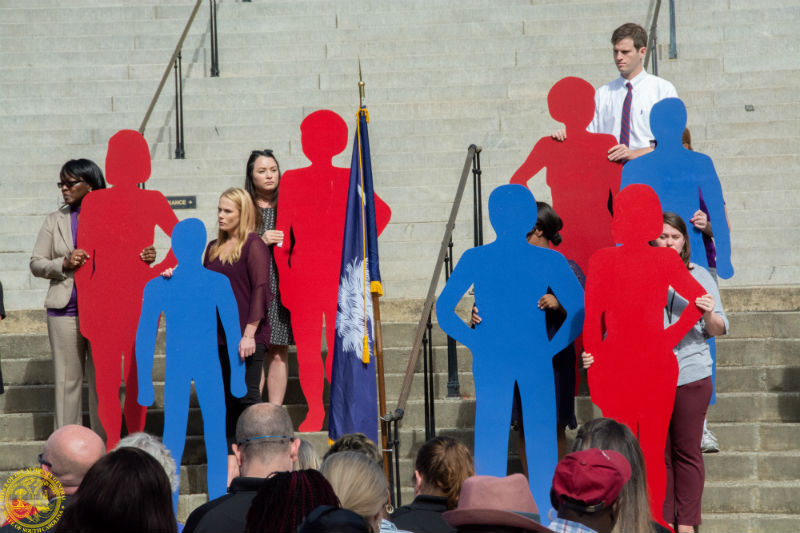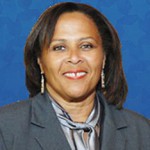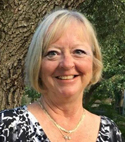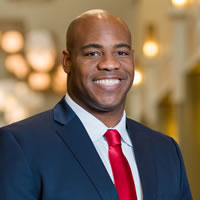INSIDE ISSUE 17.40 | Oct. 5, 2018
NEWS: What women want: A safer, better South Carolina for themselves — and others
BRIEFS: On veto overrides, conformity and opioids
COMMENTARY, Brack: Doing the right thing for South Carolina
SPOTLIGHT: ACLU of South Carolina
MY TURN, Saul: Reject president’s course of not loving thy neighbor
FEEDBACK: There is a better way of educating. We’re just not doing it.
MYSTERY PHOTO: Big, scary bird?
S.C. ENCYCLOPEDIA: Gov. Paul Hamilton
NEWS: What women want: A safer, better South Carolina for themselves — and others

By Lindsay Street, Statehouse correspondent | The silhouettes representing 29 women slain by men stood silent on the Statehouse steps this week. For some public leaders and advocates, the women were emblematic of a deep cultural problem that can and should be further unraveled with the help of state policy.
In South Carolina, women face a higher rates of assault and sexual assault victimization than the rest of the nation. Lower-income women struggle with access to health care. Women fail to keep pace with their male peers in the workforce — whether its being paid less than a man for the same work or dropping out of the workforce entirely. And fewer women serve in public office and on boards that make decisions for other women.
- Read the latest report from the Violence Policy Center that lists South Carolina as the sixth most deadly state for women.
- See the 2015 report on the status of women in South Carolina.
“All of these things are intertwined with one another,” said Elizabeth Smith, chair of Furman University’s Department of Politics and International Affairs.

Many of the issues also stem from poverty or low wages in the state, she said. For example, a woman in an abusive relationship may be unable to leave without risking financial security or may be unable to afford housing on her own with her children. Another example: a young woman who is unable to obtain birth control may end up with an unintended pregnancy, impacting her education, her workforce opportunities and her potential wages.
Smith and others this week described to Statehouse Report how South Carolina continues to rank worse for women due to its culture.
“It has a long history of patriarchal traditions that have made it difficult for women,” Smith said. She said those traditions have been absorbed into the state’s institutions and laws. “We have not created by law or shown by law an interest in promoting equality.”
The following are four women — advocates and public officials — talked about what they see as issues for women in the Palmetto State and how they want to see them solved.
Sara Barber, Columbia
Executive director of S.C. Coalition Against Domestic Violence and Sexual Assault

Barber said South Carolina’s traditional roles for women combined with the state’s strong gun culture to make it particularly deadly for women.
“We have really weak gun laws in our state. Firearms are overwhelmingly the weapon of choice for men who choose to kill women,” she said.
Barber praised the state’s sexual assault laws, but she said consent and sexual assault needs to addressed as part of sex education in public school. South Carolina is among the majority of states that does not teach consent as part of its sex education curriculum. Consent means both partners agree to a sexual activity.
“We can’t approach talking about violence and sexual assault if we can’t talk about sex or sex only in terms of abstinence,” Barber said.
Barber also said she’d like to see better policy on rape kits to ensure evidence is tested and utilized; better protections for sexual assault victims when it comes to their voices in court; and better protections for victims when it comes to landlord-tenant issues.
She said the state needs to focus on better health care, affordable housing and better education to address many of the underlying issues facing women.
“We need a broader view if we want to change our state,” she said.
Margie Bright Matthews
State senator, D-Colleton

Bright Matthews is one of four women in the 46-member S.C. Senate. That means in a state made up of 51.5 percent women, the state Senate has fewer than 9 percent of senators who are women. The House isn’t much better. Of its 124 members, there are 23 women (18.5 percent). The national average for legislative bodies is 24.9 percent.
Bright Matthews said the lack of female representation is seen across the state in local governing bodies, boards and courtrooms. But even when outnumbered, women can still make a difference, she said.
Bright Matthew credited her fellow woman senators in stopping draconian abortion legislation from passing the legislative body last session.
“The women said, ‘No, we’re going to fight,’ and that’s what made the difference,” she said. Bright Matthews is one of two Democratic senators who are women.
Bright Matthews offered two examples where legislative representation by women is vital:
First, while the S.C. Public Employee Benefit Authority recently has added a woman to the board, Bright Matthews said that in the last cycle, there were no women on the board. As a result, she said, publicly-employed women no longer have their pap smears or mammograms covered.
“A lot of us did not realize this problem existed until some of us women in the Senate went to have our general health checked out,” Bright Matthews said.
However, the authority released this statement in response to Statehouse Report’s questions about its health care plan:
“The State Health Plan still covers routine mammograms and pap tests.”
Second, the Judicial Merit Selection Commission lacks a woman on the board. Bright Matthews said that is particularly worrisome since state circuit court decisions affect all South Carolinians. She also said an all-male board could be “insensitive to women’s rights and women working.”
“We still don’t have a female on that Judicial Selection Commission,” she said.
Lin Bennett
State representative, R-Charleston

Bennett also fingered culture as a culprit in violence against women, but said it was more of an underlying culture of violence that begins in elementary school.
“Culturally, violence seems to be a bigger thing. We have it in our schools and we can’t seem to get a hold of it. We obviously have it in our relationships and our politics,” Bennett said.
She said the problem has been worsened in recent years by a lack of family planning.
“We have so many children having children they wouldn’t know a parent if it slapped them in the face,” Bennett said.
Bennett said bullying legislation passed the House last session, but faltered in the Senate, adding it should be brought up again to help stop the cycle of violence.
“Everyone wants local control and I hate standardizing everything but this is something that we got to standardize because we have to know what’s going on, what kind of violence we keep dealing with, and then we need to help the children who are not just victims but the children who are doing it,” said Bennett, who was a co-sponsor of the bill. “I think we can correct a lot of this with a program that helps these children who will one day become adults.”
Bennett also bemoaned the lack of women in politics.
“We could use more women in politics. We think differently. We process differently. It doesn’t make us better or worse, but it certainly adds to the discussion,” she said. But, getting women interested seems to be an issue. Bennett said she tries to encourage others to run for off but is met with the response “Who wants that?” due to political “nastiness.”
Ann Warner
CEO of S.C. Women’s Rights and Empowerment Network, Columbia

Warner is pleased that South Carolina recently took a clear step forward in making workplaces better for women with the Pregnancy Accommodations Act, which requires employers to make reasonable accommodations, such as a offering a chair or water, for their pregnant employees. But she still feels like the state has a long way to go.
“The data are all pretty clear that South Carolina is not a great place for women,” Warner said. “(It’s) a pretty bleak picture on average of what the state of the state is regarding how we treat and respect women.”
Warner said it is going to take a cultural shift to help make it a better place.
“We need a movement for gender equality that includes women and men and that is diverse and includes all people from all corners of our state,” she said. “Having more equity and opportunity for women in our state is good for everybody. It’s good for their partners, their kids and their communities. We need more people to be vocal and active and speaking up for that.”
WREN, which formed last year, pushed for two pieces of legislation in last session, including the Pregnancy Accommodations Act. The other piece allowed women to obtain prescriptions for 12-month of contraception. That bill stalled in the Senate.
Warner said her organization will push for the contraceptive bill to be reconsidered.
“We see it as a practical way to break down some of the barriers that women have to being able to access reliable and consistent forms of contraception,” Warner said. “Being able to have control over if when and how you start a family is so fundamental to your life journey … Being able to have access to contraception puts that power in a woman’s hand so she can make those critical life choices that determine so much for her and for her family.”
Warner said an equal-pay statute would go a long way toward ushering in more equality in the state, as would educating women for non-traditional careers and urging employers to find ways to be more woman-friendly
- Have a comment? Send to: feedback@statehousereport.com
NEWS BRIEFS
BRIEFS: On veto overrides, conformity and opioids
Staff reports | The General Assembly convened this week for a whirlwind session to deal with gubernatorial budget vetoes and the state’s tax code.
![]() In June, Gov. Henry McMaster struck 42 line items from the state budget — killing funding to Planned Parenthood, killing a massive data warehouse, and disaster relief, to name a few.
In June, Gov. Henry McMaster struck 42 line items from the state budget — killing funding to Planned Parenthood, killing a massive data warehouse, and disaster relief, to name a few.
Lawmakers sustained McMaster’s Planned Parenthood and data warehouse vetoes, but overrode the disaster relief line item. Click here to read more.
In other news:
Conformity. South Carolina’s tax code will now mirror the federal government’s following a summer-long effort to find a way to align the state tax code to the federal onem without raising state taxes on most residents. The move allows preparers and filers to base their state tax filing on numbers generated from their federal tax return. The federal government’s massive tax overhaul in December 2017 put the state in a tax conundrum. If it conformed automatically, state taxes would go up. If it didn’t, the state would risk losing hundreds of millions of federal tax dollars due to noncompliance from making the system too complicated by not conforming. So that left lawmakers with only one option if they didn’t want to raise taxes: to conform but include some extra exemptions. To limit any tax increase, lawmakers in South Carolina chose to keep its dependent deduction ($4,110) and then double it for those with young children ($8,220). Read more here.
Opioid funding. The S.C. Office of Rural Health has received federal funding to address opioid-use disorder throughout rural South Carolina. In 2017, 748 people across the state died from an opioid related overdose, according to the office. The office will work with local partners around the state over the next year to build upon existing efforts.
- Have a comment? Send to: feedback@statehousereport.com
BRACK: Doing the right thing for South Carolina

Commentary by Andy Brack, editor and publisher | With statewide elections a month away, let’s think seriously about leadership.
 What kind of leaders do we want in the Palmetto State? Do we want leaders who will continue to do what they’ve been doing for years? If so, how’s that working out? South Carolina continues to be at the wrong end of too many lists.
What kind of leaders do we want in the Palmetto State? Do we want leaders who will continue to do what they’ve been doing for years? If so, how’s that working out? South Carolina continues to be at the wrong end of too many lists.
Or do we want leaders with vision who will take chances and try new things — leaders who will work collaboratively to develop policies and strategies that will, ahem, make South Carolina great?
Two men from the trenches of state government who have written books on leadership have lessons for those who want to make a difference.
Jason Kander, who narrowly lost a U.S. Senate race in MIssouri in 2016, is a former secretary of state who served in Afghanistan as an intelligence officer. Earlier this month, Kander bowed out of a bid for Kansas City mayor to deal with post-traumatic stress syndrome.
“Don’t let anyone tell you that this generation is selfish,” he wrote in November 2016. “This is a generation that cares more about ideas than ideology and measures patriotism not by a politician’s eagerness to go to war but by their willingness to do what’s right no matter the political cost.”
In a recent podcast with CBS News, Kander described how he thought most people got into politics to make a change in the world. To be successful, they have to focus on the change, not get caught up in politics of the system, as he explained in his book, Outside the Wire: 10 Lessons I’ve Learned in Everyday Courage.
“The secret to adulthood is that 99 percent of the time when we’re facing a so-called really hard decision, the truth is we’re just trying to decide whether to do the right thing,” Kander said. “And when you recognize that, you realize just do the right thing and have enough game – be good enough at this – to defend that decision.”

But the system can reshape elected officials and make them forget why they ran in the first place, as former S.C. Rep. Anton Gunn knows.
Gunn, now an executive at MUSC in Charleston, represented Kershaw and Richland counties before he left to work on Barack Obama’s presidential campaign and, later, as a top administration official in the U.S. Department of Health and Human Services.
This week, Gunn recalled how he became frustrated when good ideas got shot down for political reasons or because he was a freshman, a Democrat or black.
“I only stayed in the legislature two years because I didn’t feel like there was enough service happening,” he said, defining service as working to improve everyone’s lives and helping people’s dreams come true. “There were a lot of things happening, some of them good and many of them bad, but there wasn’t enough service.”
State lawmakers should realize they represent more than their district, he said. They make decisions for the whole state.
“The political expediency of focusing on right now is what has most of America paralyzed,” said Gunn, author of the new book, The Presidential Principles: How to Inspire Action and Create Lasting Impact. “We love to do what’s easy instead of doing what’s hard.”
Real leaders, he said, focus on the long term, such as how the late Gov. Carroll Campbell prioritized economic development that led to the state’s currently strong automotive culture. Or how former Gov. Jim Hodges prioritized early childhood education to help children get a leg up on the world.
“Every lawmaker should get together and think about 30 years from now and how they won’t be in the legislature and how do you focus on making a decision today that will ensure that South Carolina is much better 30 years from now than it could ever today….
“It ain’t rocket science. There’s nothing new under the sun. The question is do you have the intestinal fortitude or the altruism to believe that I should do more for my brother or sister. How do we close the gaps?”
Courage. Intestinal fortitude. It’s all the same — being willing to put the job on the line to make a difference. That’s what South Carolina needs now.
- Have a comment? Send to: feedback@statehousereport.com.
SPOTLIGHT: ACLU of South Carolina
 The public spiritedness of our underwriters allows us to bring Statehouse Report to you at no cost. This week’s spotlighted underwriter is the American Civil Liberties Union. The ACLU of South Carolina is dedicated to preserving the civil liberties enshrined in the U.S. Constitution and Bill of Rights. Through communications, lobbying and litigation, the ACLU of South Carolina works to preserve and enhance the rights of all citizens of South Carolina. Foremost among these rights are freedom of speech and religion, the right to equal treatment under law, and the right to privacy.
The public spiritedness of our underwriters allows us to bring Statehouse Report to you at no cost. This week’s spotlighted underwriter is the American Civil Liberties Union. The ACLU of South Carolina is dedicated to preserving the civil liberties enshrined in the U.S. Constitution and Bill of Rights. Through communications, lobbying and litigation, the ACLU of South Carolina works to preserve and enhance the rights of all citizens of South Carolina. Foremost among these rights are freedom of speech and religion, the right to equal treatment under law, and the right to privacy.
- MILESTONE: In September, the ACLU of South Carolina celebrated 50 years of preserving civil liberties in the Palmetto State.
- More: http://www.aclusouthcarolina.org/
MY TURN, Saul: Reject president’s course of not loving thy neighbor

By Dr. Robert A. Saul, special to Statehouse Report | “Love thy neighbor.”
This quote from Matthew 22:39 is explicit in its instruction. After the primary commandment to “love the Lord thy God with all thy heart, and with all thy soul, and with all thy mind,” the second commandment states “Thou shalt love thy neighbor as thyself.”
 This is quite clear yet I do not see anything close to adherence to this commandment from our current president who touts himself as a true believer and carrier of the Christian evangelical torch. Love thy neighbor obviously means certain things to certain people as it is perverted to less than noble purposes.
This is quite clear yet I do not see anything close to adherence to this commandment from our current president who touts himself as a true believer and carrier of the Christian evangelical torch. Love thy neighbor obviously means certain things to certain people as it is perverted to less than noble purposes.
But I know what it doesn’t mean:
Fear thy neighbor. The scripture is clear. The constant fear-mongering tactics that are used to label people that are different than us are not consistent with a loving-thy-neighbor philosophy. When a broad brush is used to label a group of people or a race of people as rapists or murderers, that is exactly the opposite of what the scripture intends. We all know that evil occurs and we must be careful of certain people. But that doesn’t mean that we should be applying labels to a whole group of people by asking others to fear them.
Ridicule thy neighbor. Using demeaning terms to belittle others is not proper conduct and certainly beneath the dignity of the presidency. Mocking disabled individuals, calling people “low IQ, crooked or lyin’” or using ethnic slurs to describe political opponents runs counter to the instruction to love thy neighbor. How can we condone such behavior when we would not accept such behavior in our children? It is OK (and actually proper) to address aberrant behavior as wrong even for members of one’s own political party.
Disrespect thy neighbor. Folks who have come before you in public service and served honorably should be respected. Previous public servants, even from the other side of the aisle, should be honored and thanked for their service. Public servants, including military members who have returned from their tour of duty or suffered imprisonment with the enemy or died in the line of service, deserve our undying devotion. Being disrespectful is totally unacceptable.
Lie to thy neighbor. One should never lie to anyone. Not being truthful is wrong. When one lies often, we can never trust anything they say. Truth is not a single fact. Truth is an accumulation of facts. These facts are the bricks that are laid together to build a house. If the bricks crumble because they are not solid, the house will fall. Only by following the way of the truth can integrity be demonstrated and persist going forward.
Falsely accuse thy neighbor. One should only accuse one’s neighbor of a misdeed when there is substantial evidence to that effect. To accuse someone of a misdeed just to deflect attention away from oneself is as bad as committing the misdeed oneself. To accuse someone of not being born in the United States without any shred of evidence is xenophobic (exhibiting hatred for foreigners). Accusing a group of young men of rape in Central Park without any shred of evidence is racist.
Be uncivil to thy neighbor. Loving your neighbor means being able to listen respectfully to one’s neighbor and being able to respond without mockery. These are the hallmarks of civil discourse and define true love for your neighbor.
Blame thy neighbor. At times of natural disasters (like Hurricane Maria in 2017 or Hurricane Florence in 2018), neighbors take care of each other—and those in higher positions do not assign blame for problems that occurred. Everyone rolls up their sleeves and does what needs to be done. We do not grade our response to the disaster; rather we look beyond ourselves to those in need. We help our neighbors in physical and material ways. But most of all, we help in the most important way—we empathize. We put ourselves in their places and do whatever we can, recognizing that we can always do better. It is not us versus them. It is all of us together.
Love for thy neighbor is really tough for all of us, if we are honest with ourselves. Yet total disregard for this holy instruction makes a mockery of the office of President and tears at the moral fabric of the country when it is allowed to continue and accepted as the new norm. I reject this current course.
Dr. Robert A. Saul is a Greenville pediatrician and the author of “My Children’s Children: Raising Young Citizens in the Age of Columbine” and “All About Children.” In 2015, he offered this commentary on the toxic effect of poverty.
- Have a comment? Send it to: feedback@statehousereport.com.
FEEDBACK
There is a better way of educating. We’re just not doing it.
To the editor:
![]() So, according to this article, the reason our students are struggling is as follows: parents aren’t involved, the community needs to get involved, the culture needs to shift, class sizes need to be reduced, we need to test less and we lack quality teachers.
So, according to this article, the reason our students are struggling is as follows: parents aren’t involved, the community needs to get involved, the culture needs to shift, class sizes need to be reduced, we need to test less and we lack quality teachers.
Blame is placed everywhere EXCEPT the fact that the instruction teachers are told to do is NOT based on the current science of reading, evidence-based practices, and the five essential components of reading instruction from the National Reading Panel (that has been out since 2000). I should point out that we are 47th out of 50 states.
Obviously, there IS a better way (46 other states have figured it out). We just aren’t doing it.
Please read the article (or better yet, listen to the podcast): “Hard Words: Why Kids Aren’t Being Taught To Read“).
— Angie Neal, M.S. CCC-SLP, Greenville, S.C.
Send us a letter. We love hearing from our readers and encourage you to share your opinions. But you’ve got to provide us with contact information so we can verify your letters. Letters to the editor are published weekly. We reserve the right to edit for length and clarity. Comments are limited to 250 words or less. Please include your name and contact information.
- Send your letters or comments to: feedback@statehousereport.com
MYSTERY PHOTO: Big, scary bird?

This might not be a good bird to encounter at any time. But what — and where — is it? Send your guess to: feedback@statehousereport.com. And don’t forget to include your name and the town in which you live.
Our previous Mystery Photo
 Our Sept. 28 mystery brought about a coincidence that is so curious that we have to share. Two sleuths answered within 37 minutes of each other and, boy, are their names similar — Mike LeFever and Don Hottel, both of Columbia. We guess they were on fire about the same time last week. Ba dum bump!
Our Sept. 28 mystery brought about a coincidence that is so curious that we have to share. Two sleuths answered within 37 minutes of each other and, boy, are their names similar — Mike LeFever and Don Hottel, both of Columbia. We guess they were on fire about the same time last week. Ba dum bump!
Congrats to a host of other mystery sleuths who correctly identified the photo as the top of the grand Westin Poinsett Hotel in Greenville. Hats off to Don Clark and Bill Segars, both of Hartsville; Faith A. Line and Josephine McMullen, both of Anderson; Phillip Carros and Craig Jacobs, both of Spartanburg; Terry Plumb of Rock Hill; Ken May, Jay Altman, Pamela Lackey and Daniel Brennan, all of Columbia ; Larry Cannon of Simpsonville; Philip Cromer of Beaufort; David Lupo of Mount Pleasant; George Graf of Palmyra, Va.; Harvey Shackelford of Newberry; Henry Horres of James Island; and Bob Knight of Greenville. Wow! Twenty correct answers … our highest number yet! Thanks all.
Segars provided more detail: “This building is one of the first skyscrapers, 12 stories tall, in South Carolina. Located at 120 S. Main St. in downtown Greenville, the Poinsett Hotel was designed by William L. Stoddard and built by the J.E. Sirrine Company of Greenville. When it was completed in 1925, it cost $1.5 million. Its interior featured many amenities not typically found in hotels of this era: a ball room, a convention center, main and private dining areas, shops and stores and, best of all, 210 guest rooms each with a private bath.
Graf added: “According to Wikipedia.com, Built at the end of an era during which small Southern cities demanded quality hotels to attract business travelers and symbolize their new urban status, the Poinsett Hotel was, in part, conceived to accommodate visitors to a biennial Southern Textile Exhibit held in Greenville. A century-old hotel, the Mansion House, was razed and a larger building was designed for its Main Street location by noted New York architect William Lee Stoddart. To help raise money for the project, local businessmen, led by textile magnate John T. Woodside (1864-1946), sold $100 shares of stock to 1,700 local residents; and the hotel was named for Joel R. Poinsett, a South Carolinian who had served as Secretary of War and as the first U.S. Minister to Mexico. Groundbreaking occurred in May 1924; and the $1.5 million Poinsett Hotel opened in June 1925.
“According the University of Virginia Miller Center, Poinsett was appointed Secretary of War by President Martin Van Buren (1837-1841), and Poinsett spearheaded a number of bloody Indian campaigns and forced resettlements in the South. Joel Poinsett founded the Academy of Fine Arts in Charleston and later died in Sumter County, South Carolina, on December 12, 1851.”
- Send us a mystery: If you have a photo that you believe will stump readers, send it along (but make sure to tell us what it is because it may stump us too!) Send to: feedback@statehousereport.com and mark it as a photo submission. Thanks.
S.C. ENCYCLOPEDIA
HISTORY: Gov. Paul Hamilton
S.C. Encyclopedia | Paul Hamilton was born in St. Paul’s Parish on October 16, 1762, the son of Archibald Hamilton and Rebecca Branford. He received instruction from a private tutor in Charleston until 1778, when he left the city to join a local militia company. During the Revolutionary War, Hamilton served in militia units commanded by Francis Marion and William Harden. He participated in several significant actions, including the siege of Savannah (1779), the Battle of Camden (1780), and the capture of Fort Balfour (1781). After the war Hamilton took up planting rice and indigo in St. Paul’s and St. Bartholomew’s Parishes. By 1788 he owned at least thirty-eight slaves and 1,602 acres of land. On October 10, 1782, he married Mary Wilkinson, and the couple eventually had at least six children.

Well positioned by his military service and family connections, Hamilton turned to politics in the postwar years. He served one term in the General Assembly as a representative from St. Paul’s Parish from 1787 to 1789. As a delegate to the South Carolina ratification convention in 1788, Hamilton voted in favor of the federal Constitution. He then represented St. Bartholomew’s Parish for three terms in the state Senate during the 1790s, during which time he became a Democratic-Republican in contrast to the Federalist leanings of many of his lowcountry contemporaries. He was an elector for Thomas Jefferson in the 1800 presidential election. While serving as state comptroller of finance, Hamilton was elected governor of South Carolina by the General Assembly on December 10, 1804.
During his two-year tenure he advocated military preparedness through improvements to state militia laws and coastal defenses. He also called for a revision of the penal code, requesting that the state’s “old sanguinary provincial system” be replaced with a penitentiary system that would provide inmates “time for reflection and amendment.” He also urged the General Assembly to ban the Atlantic slave trade, which had been reopened in 1803. Legislators resisted Hamilton’s request, however, and the trade remained open until Congress closed it permanently in 1808.
In 1809 President James Madison selected Hamilton to be his secretary of the navy as part of an effort to achieve regional balance in his cabinet appointments. Hamilton proved an inexperienced but competent naval administrator. He advocated fiscal restraint and general military preparedness, including the enlargement of the seventeen-ship U.S. Navy. His one lasting success was in securing congressional support for the creation of a system of naval hospitals in 1811. When war broke out with Britain in 1812, Hamilton, fearing the tiny U.S. Navy would be destroyed, advised Madison to order all vessels to port. He was overruled and Madison implemented a plan to harass British merchant ships. At a presidential ball to celebrate the surrender of HMS Macedonia, Hamilton appeared so drunk that Madison requested his resignation. Hamilton subsequently resigned on December 31, 1812. He died at Beaufort on June 30, 1816, and was buried at a private cemetery in Beaufort District.
— Excerpted from an entry by James Spady. This entry hasn’t been updated since 2006. To read more about this or 2,000 other entries about South Carolina, check out The South Carolina Encyclopedia, published in 2006 by USC Press. (Information used by permission.)
ABOUT STATEHOUSE REPORT
Statehouse Report, founded in 2001 as a weekly legislative forecast that informs readers about what is going to happen in South Carolina politics and policy, is provided to you at no charge every Friday.
- Editor and publisher: Andy Brack, 843.670.3996
- Statehouse correspondent: Lindsay Street
More
- Mailing address: Send inquiries by mail to: P.O. Box 22261, Charleston, SC 29407
- Subscriptions are free: Click to subscribe.
- We hope you’ll keep receiving the great news and information from Statehouse Report, but if you need to unsubscribe, go to the bottom of the weekly email issue and follow the instructions.
- © 2018, Statehouse Report. All rights reserved.















 We Can Do Better, South Carolina!
We Can Do Better, South Carolina!